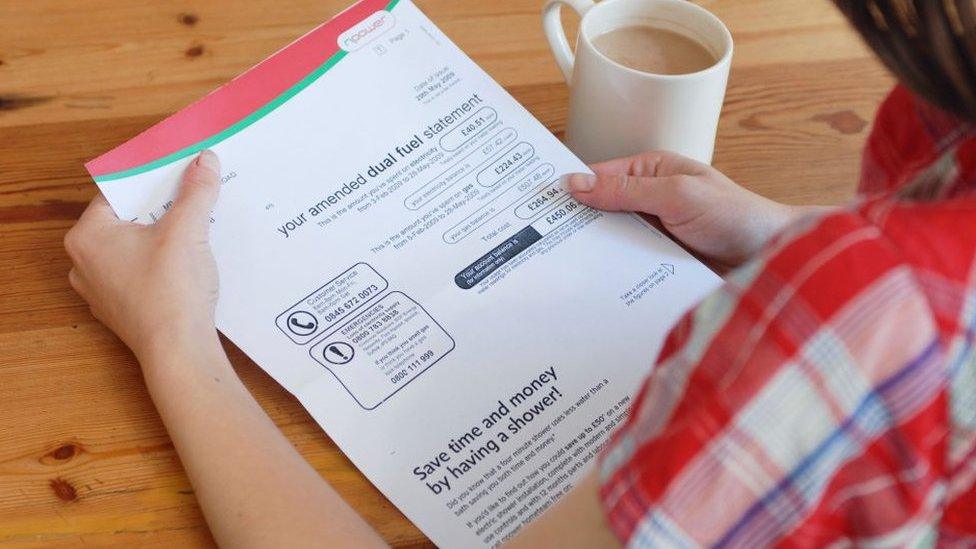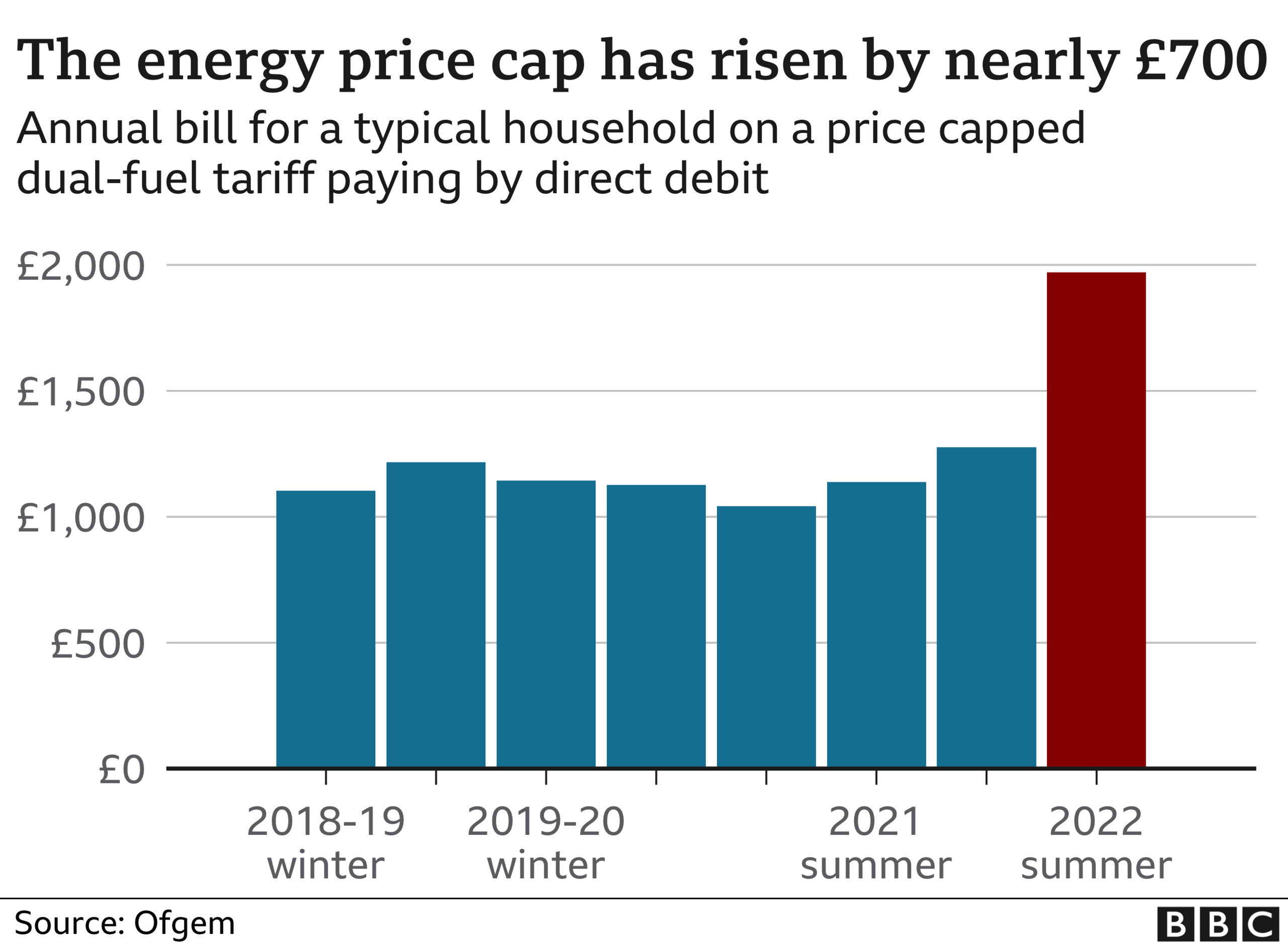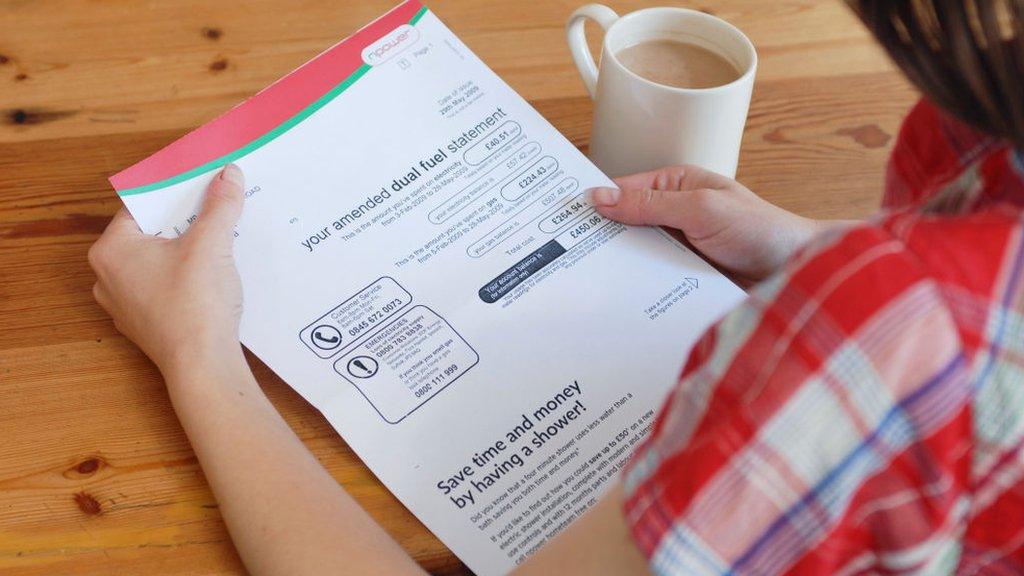Energy firms face deadline in review of direct debit hikes
- Published
- comments

Some energy suppliers have been given a three-week deadline to explain accusations they have increased customers' direct debit payments by "more than is necessary".
Jonathan Brearley, boss of the energy regulator Ofgem, recently said there were "troubling signs" of the tactic.
He also expressed concern over customers being directed to inappropriate deals.
Official reviews have now been launched.
Energy bills
Mr Brearley had said in April that reviews were imminent, but the development emerged from an update published on Twitter by Business Secretary Kwasi Kwarteng.
Allow X content?
This article contains content provided by X. We ask for your permission before anything is loaded, as they may be using cookies and other technologies. You may want to read X’s cookie policy, external and privacy policy, external before accepting. To view this content choose ‘accept and continue’.
Mr Kwarteng said that some energy companies had been increasing direct debits beyond what was required.
"I can confirm Ofgem has today issued compliance reviews," Mr Kwarteng's tweet went on.
"The regulator will not hesitate to swiftly enforce compliance, including issuing substantial fines."
However, by reviewing the issue, Ofgem has yet to draw a firm conclusion on whether any rules have been broken.
An Ofgem spokesperson said: "Our top priority is to protect consumers and we recently wrote to suppliers to alert them that we are commissioning a series of market compliance reviews to ensure, amongst other things, that they are handling direct debits fairly, and that overall, they are held to higher standards for performance on customer service and protecting vulnerable customers."
A spokesman for Energy UK, which represents energy companies, said: "Suppliers are required to set [direct debits] at a fair and reasonable level based on the customer's individual circumstances, taking into account factors like previous energy use or record with previous payments.
"It is right that the regulator is looking to ensure that suppliers are complying with those requirements. Customers who do have concerns with the level of their direct debit payments should contact their supplier."
Cost of living
Prime Minister Boris Johnson had earlier acknowledged "there is more that we can do" to help families struggling with rising fuel and energy bills.
Opposition parties have called for a windfall tax on energy company profits, with Labour accusing him of offering "no answers" to a "cost of living crisis".

On 1 April, yearly bills increased by an average of £693 for about 18 million households on standard tariffs.
And some 4.5 million prepayment customers saw an average increase of £708 - from £1,309 to £2,017.
Mr Brearley, chief executive of Ofgem, wrote in a blog on Ofgem's website in April, external that the regulator had received information from consumer groups and the public about "bad practices" by some suppliers.
"We are also seeing troubling signs that some companies are reacting to these changes by allowing levels of customer service to deteriorate," he wrote.
He added that they were also concerned about "the way some vulnerable customers are being treated when they fall into difficulties".
The regulator has powers to issue "substantial fines" of up to 10% of turnover to firms found failing to comply.
Related topics
- Published15 April 2022

- Published1 April 2022

- Published1 April 2022
